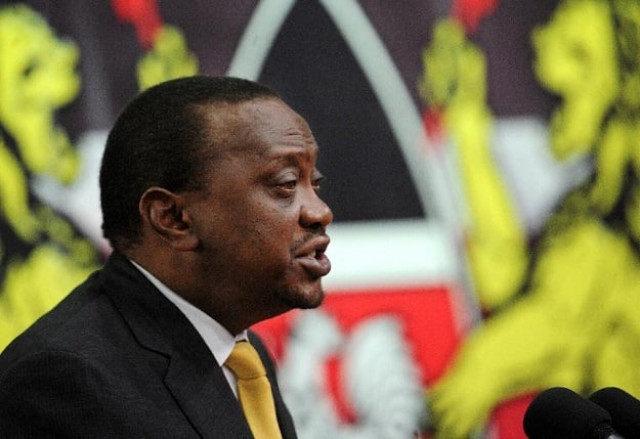Gay rights 'non issue', Kenyan president says ahead of Obama visit
Says they are faced with much more serious issues which we would want to engage the US with

Kenyatta also said Deputy President William Ruto, who is still on trial at the International Criminal in The Hague accused of crimes against humanity, would also meet the US leader.
"That is a non-issue to the people of this country, and it is definitely not on our agenda at all," Kenyatta said in response to question about gay rights.
"We as a country, as a continent, are faced with much more serious issues which we would want to engage the US and all our partners with."
Obama's planned Kenya visit was itself long delayed by Kenyatta's indictment by the ICC.
Those charges, linked to post-election ethnic violence in 2007-08, were suspended last year -- in part, prosecutors say, because the Kenyan government thwarted the investigation.
Kenyatta said that Obama would meet all members of the government.
"Without a doubt, he is coming to meet the government that is in place, that includes all of us," Kenyatta told reporters, standing alongside Ruto. "We shall all be meeting."
Read: Mocking same sex marriage, Zimbabwe's Mugabe asks Obama to 'marry him'
Ruto has spoken out against homosexuality, telling worshippers in church in May it was "against the plan" of God. In May, he said there was "no room for homosexuality" in Kenya.

Kenyan artist Dayan Masinde displays a picture in Nairobi on June 26, 2015 depicting Barak Obama (left) with Kenya's President Uhuru Kenyatta. PHOTO: AFP
Homophobia is on the rise across much of Africa and homosexuality remains illegal in many countries, including Kenya where it was outlawed under British colonial legislation.
One Kenyan man, Kidala Vincent, had promised to lead a march of "5,000 totally naked men and women" to protest Obama's support for gay rights, so that he can "see and understand the difference between a man and woman."
Read: A village dreams of Barack Obama's Kenyan homecoming
Kenyatta said economic development and security were his priorities.
"Poverty, improved health for our people, better education, better roads, better security, these are our key focuses," he said.
"The fight against terror will be central, we have been working in very close cooperation with American agencies," he added.
Kenya has been hit by a string of attacks by the Somali-led Shebab insurgents.
Kenyan troops crossed into Somalia in 2011 to fight the Al-Qaeda-linked insurgents, and later joined the African Union force, AMISOM, which is supporting Somalia's internationally-backed government.
The Shebab have since stepped up their operations in Kenya, dealing a blow to plans for the troops to serve as a buffer and protect the long, porous border.



















COMMENTS
Comments are moderated and generally will be posted if they are on-topic and not abusive.
For more information, please see our Comments FAQ